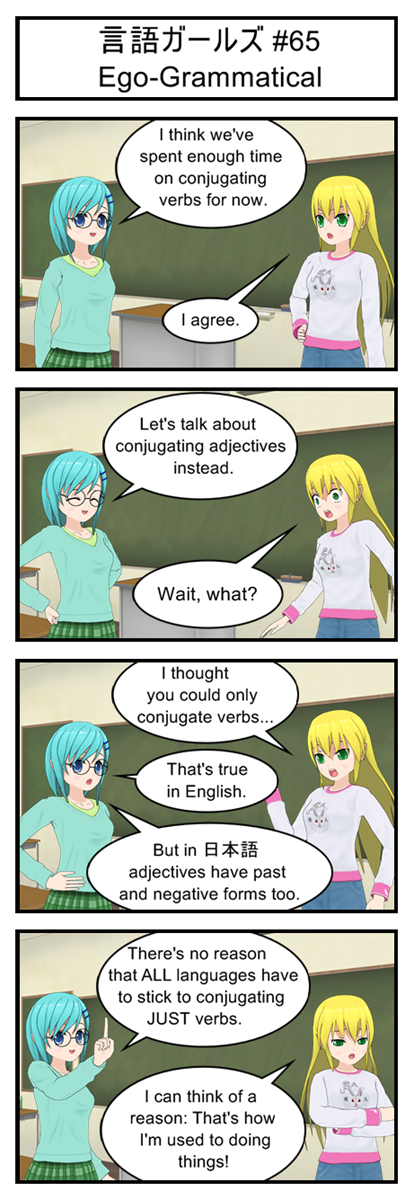
The main purpose of conjugation is to add information to a sentence. For example, a past tense verb conjugation tells you that the whole sentence is about the past. A negative verb conjugation tells you that the sentence means the opposite of what it would without the conjugation.
But when you think about it, it doesn’t really matter how information gets into a sentence as long as it’s there in the end. And while a lot of languages do this with verb conjugation there are plenty of languages with non-verb strategies for telling the listener that sentence is in the past or negative or plural or whatever.
Transcript
言語ガールズ #65
Ego-Grammatical
Blue: I think we’ve spent enough time on conjugating verbs for now.
Yellow: I agree.
Blue: Let’s talk about conjugating adjectives instead.
Yellow: Wait, what?
Yellow: I thought you could only conjugate verbs…
Blue: That’s true in English.
Blue: But in 日本語 adjectives have past and negative forms too.
Blue: There’s no reason that ALL languages have to stick to conjugating JUST verbs.
Yellow: I can think of a reason: That’s how I’m used to doing things!